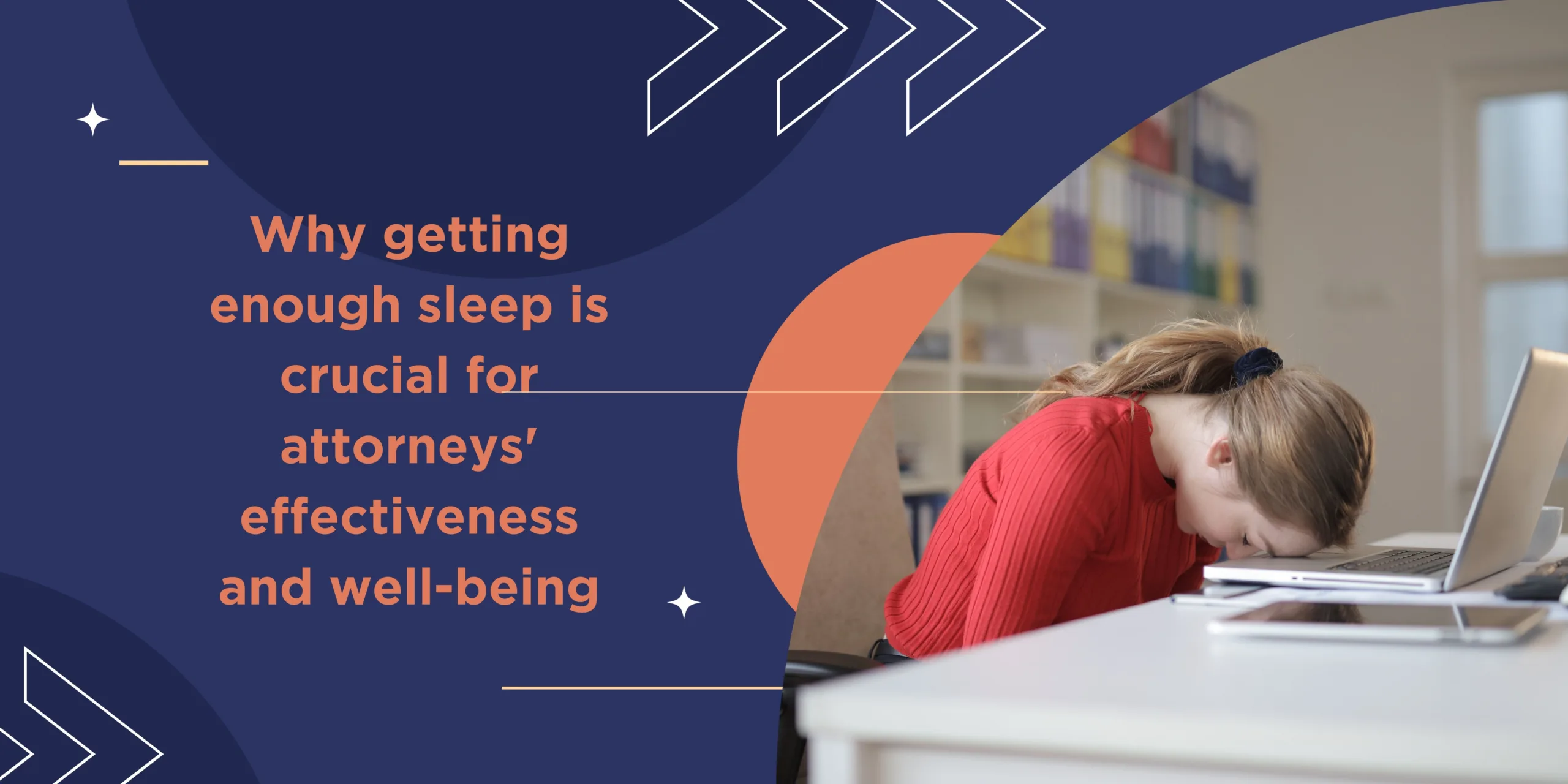Why getting enough sleep is crucial for attorneys’ effectiveness and well-being
Week of National Sleep is here. The National Sleep Foundation states that it “takes this time to reemphasize the important connection between your health and well-being” on a yearly basis.
Lawyers are renowned for their capacity to perform well under duress. Whether you work as an attorney assisting individuals or corporations in defending their legal rights in court or managing a large amount of stress, you probably put in far more work than the average 40-hour work week. Fewer lawyers are aware of the negative effects working from sunrise to sunset might have on their sleep patterns and general health, even though many are aware of the toll their career has on their social and personal life.
Why it’s not profitable to rob the sandman
Consider your personal situation. Do you regularly sleep for at least seven hours and wake up feeling refreshed and rested? You’re not alone if not. The American Bar Association reports that among all professionals, attorneys are the most sleep deprived, with many getting less than the recommended amount of sleep each night. The effects of sleep deprivation compound over time, impairing a person’s capacity for focus, rational thought, and competent decision-making—all abilities crucial for practicing law.
There are never enough hours in the day for busy attorneys who are engrossed in work related to client service, matter management, and professional growth. Many lawyers work long hours or rise early in order to make ends meet, depriving their bodies and minds of critical downtime that allows them to recuperate and rejuvenate.
What was the outcome? You’re not as concentrated and observant. Things that you used to be able to recall with ease are suddenly slipping from your memory. You find it difficult to focus and are compelled to read through crucial case materials several times. You frequently feel ill and are physically exhausted.
The institutionalization of sleep deprivation in the legal field
Due to the fact that many exceptionally talented students have all-night study sessions, bad sleep habits are frequently ingrained in attorneys during their legal education. The widespread devaluation of sleep continues after passing the bar, with young colleagues giving up valuable sleep hours to impress business partners.
Before you know it, you are a partner in a law firm and, whether you realize it or not, you are paying the price for not getting regular, good sleep in years. Chronic sleep deprivation over time has a devastating effect on your body and can result in major health disorders that drastically lower your quality of life, from diabetes and heart disease to anxiety and depression.
Relationships between sleep Mental and physical well-being of attorneys
The National Sleep Foundation states that an adult needs seven to nine hours of sleep every night on average. Reduced cognitive functioning, mood fluctuations, weight gain, and hypertension are just a few of the negative mental, emotional, and physical side effects that have been associated with inadequate sleep.
Make sleep-related non-negotiables for your own well-being.
Fortunately, you don’t have to live like way. Millennial lawyers are changing the culture at many legal firms by demanding a better work/life balance. The leadership of their firm is starting to realize how important it is for its attorneys to be well in order for the firm to be successful.
Unfortunately, after years of bad sleep habits, a lot of attorneys who wish to prioritize their personal wellness find it difficult to get enough sleep. If you struggle to unwind at night and either fall or remain asleep, the following advice may be helpful:
Switch off the screens.
At least an hour before going to bed, turn off the TV and your phone.
Create rituals for decompression
Before going to bed, take an hour to relax after the day. Engage in deep breathing exercises, meditation, low-impact workouts, or stretching.
Get into bed early.
Make it a goal to sleep for seven hours every night.
Make the most of the power of visualization.
Breathe slowly and deeply, then close your eyes to picture yourself sound asleep.
Don’t have a nightcap.
The National Sleep Foundation states that drinking alcohol disrupts your body’s natural chemical production, which impairs your ability to fall and stay asleep.
Sort out your concerns
To avoid thinking while you should be sleeping, set aside 10 to 15 minutes of your morning to consider business and personal issues.

